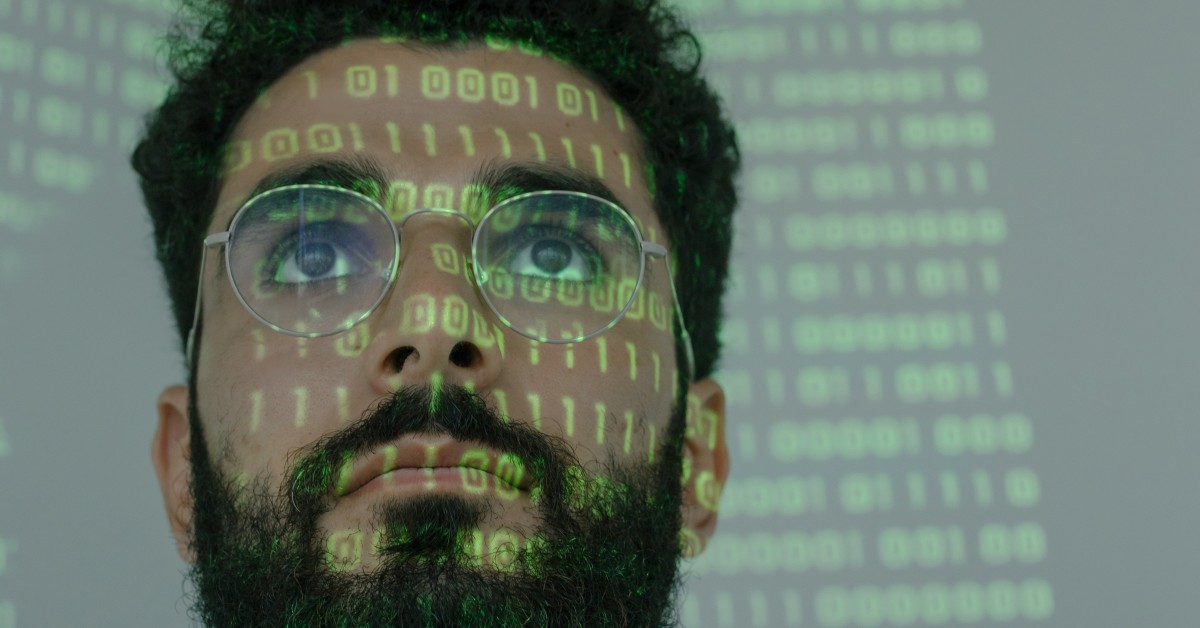
Recent Trends in Business Master's Applications and Admissions
The pandemic shook up the predictable world of business master's [...]

Rationalizations help us out of sticky situations. They offer a safety net that can convince ourselves and someone else that a greater force is at play. Think about the last time you were late for work. “There was so much traffic!” you might have said. Or, “You know how the trains are!”
Then there are all the reasons we don’t check small things off our to-do lists. We put off even minor tasks—like going to the grocery store—over and over until suddenly, it’s Sunday night, and we’re left buying takeout all week. (In case you were wondering: no, you’re not the only one.)
Something as large as pursuing a Master of Science in Cybersecurity can work the same way. Graduate programs often look daunting from the outside, especially in a field as vast as information security.
According to Dr. Claudia Aguirre of Headspace, “Psychologists place excuse-making in the ‘self-handicapping’ category—that is, it’s a behavior we express that hurts our own performance and motivation.”
For example, perhaps you’re on the precipice of applying to a cybersecurity master’s program, but the arguments against it are popping in your head up left and right. While there are plenty of legitimate excuses to consider, many can freeze you in place.
In this guide, we’ll chat about some of the most common reasons professionals and newbies talk themselves out of an advanced cybersecurity program. These include:
If you’re old enough to remember, think back to where we used to store data before the internet. Rooms and rooms of file cabinets held our most precious information on paper. Everything from national security secrets to your birth certificate lived in a physical location.
Now that this information lives online, the world needs a well-trained workforce to protect against cyber attacks. Cybercrimes target data for various reasons—from disrupting an individual’s finances to shutting down a country’s infrastructure.
Cybersecurity is the act of detecting, stopping, and protecting against threats to online data. While it’s quite common to find cybersecurity positions at large corporations or government agencies, network security is key in nearly all industries today.
What does the life of a cyber defense team look like? One of the most fascinating things about the field is the diverse mix of candidates and positions.
Cybersecurity graduates come from a range of specializations. These include—but are by no means limited to—mathematics, computer science, information technology, and computer engineering.
Some even completed a smattering of technical coursework as part of their undergraduate degrees without earning a relevant major. Others discovered their love of digital forensics when working out in the field.
Cybersecurity jobs, from entry-level to chief information security officers, tackle different stages of cyber operations. Each unique position highlights professional strengths, whether in problem-solving, software engineering, customer support, or team leadership.
Most importantly, both the job opportunities and earning potential are quite promising, according to the Bureau of Labor Statistics. Getting a cybersecurity master’s degree broadens your job opportunities even further.
With data security threats growing more common and complex each day, the US is moving quickly to train and hire stellar security management teams. A graduate degree is not necessary to get a full-time job in computer security. However, it does unlock high-paid positions, leadership roles, and opportunities in some specializations.
Top cybersecurity degree programs cover a range of topics that typically include:
Both on-campus and online master’s programs are popular in this field. Earning an online degree will allow you to blend your work schedule with classwork or take on an accelerated program for just a few months.
The University of Tulsa, for example, allows students to complete their program in anywhere from 20 months to four years, based on their preferred pace. Students complete 30 credit hours combining core courses and electives in their field of specialty.
Admission requirements for cybersecurity programs typically include:
Many programs cater to busy professionals. They offer financial aid, part-time options, and a mix of thesis and non-thesis options, such as capstone projects, to further accommodate their students’ needs.
Let’s dive into the common rationalizations to skip out on a cybersecurity post-graduate degree. We’ll help you break down what’s fact and what’s fiction when it comes to earning a cybersecurity degree.
You’re not alone in believing that a bootcamp or certificate program is enough to spur a career in cyber defense. In many cases, these are enough to move up the ladder when paired with excellent field experience.
Additionally, these programs often take less time, cost less money, and require fewer prerequisites. However, accelerated bootcamps are not ideal for every career.
Quinnipiac University has a great take on this topic. Frederick Scholl, the Director of the school’s cybersecurity program, explains that a master’s program teaches both the hard and soft skills required in complex cybersecurity roles.
In addition to the technical skills in a bootcamp, students learn each topic within the context of today’s quickly changing threats and security policies. They also get the chance to put their skills to work under the guidance of the field’s top mentors.
So, while bootcamps help you acquire the knowledge, they don’t necessarily help you lock in the abilities to perform in the real world.
Lastly, if you have dreams of nabbing a C-level position down the line, a master’s provides the leadership, administrative, and business management skills that go hand-in-hand with information assurance roles.
There is a common misconception that only the top experts in the field turn recruiters’ heads. In reality, companies across industries are searching for a range of IT professionals with unique skills to protect their computer networks.
As the SVP of Marketing at McAfee, Judith Bitterli, points out, “It’s not solely about understanding technology. It’s about understanding people too and how people and technology interact.”
Information security analysts do more than just work with operating systems all day. They utilize their knowledge of human behavior to get ahead of cyberattacks and then communicate their tactics to the non-technical leaders of their companies.
On top of all this, cybersecurity professionals are in great demand. Bitterli notes that there were 4 million open jobs globally at the end of 2020.
What’s more, you won’t just find positions with the top corporations in the field. Cybersecurity professionals work with:
If you’re aiming to work in the public sector, you will also find highly specialized roles with the Department of Homeland Security and the National Security Agency. The field is about as wide as it can be; it’s just about finding the right place to flourish.
If you look at the massive, overarching cybercrime problem today, yes, the field is challenging. But no cybersecurity professional is ever working alone. Much like an army, cybersecurity professionals collaborate to maintain a great defense.
A great cybersecurity master’s program understands this. Professors build a curriculum to help you understand the field in a digestible, real-world context.
Virginia Commonwealth University, for example, teaches about cybercrime from the perspective of protecting the public. Its online master’s in homeland security and emergency preparedness covers topics like disaster relief, law enforcement, and security engineering.
From a logistical standpoint, the challenge of any graduate program often comes down to time and money. This is why choosing a flexible and well-structured program is key to reaching your cybersecurity goals.
The VCU programs offer flexibility for each student, requiring about six to eight hours of coursework each week in addition to live online sessions, which provide hands-on instruction and collaborative opportunities.
Quite often, deciding on secondary education comes down to your ROI (return on investment). Will you make enough to balance out how much you spent on school?
In this case, you’re in the clear. Salary potential and the long-term value of a cybersecurity degree are both high. Zip Recruiter reported that professionals with a master’s in cybersecurity bring in an average annual income of $102,117 as of mid-2021.
There are also many accredited institutions that offer affordable master’s degrees in cybersecurity. Many online programs cost less than $1,000 a credit, with some even as low as $15,000 for the whole program.
On top of all of this, some students continue to work full or part-time when completing a master’s. So, you don’t necessarily have to account for lost income during your studies.
There has been a lot of anxiety circulating about the rise of AI and its effect on cybersecurity. Machine learning may cover a large portion of the jobs completed by humans in just the next ten years. For example, AI programs may detect threats, test for vulnerabilities, and act as penetration testers.
However, many leaders in the field see this as promising and expected. With AI focusing on the nitty-gritty work, professionals will be free to focus on larger, more complex issues. There will also be more positions in the field handling how AI is used and managed. Cybersecurity positions, they believe, will simply change, not go away.
There are also human aspects of cybersecurity that require knowledge outside of a computer’s know-how. Information systems will always need a creative user experience design, for example. Topics like risk management and the strategic use of AI tools will also always fall to humans with a greater understanding of the world as a whole.
Most importantly, a master’s degree program touches on enough areas of the cybersecurity field that students may leave more prepared for a changing world. If and when the time comes to pivot, they’ll be well prepared.
Let’s say you’ve worked through each reason above, and you’re still not sold on a master’s. As previously noted, you don’t need an advanced degree for every job in information systems security. You may also simply not need one for this stage of your career.
Many professionals pursue an undergraduate degree in topics like computer science, math, or engineering before exploring roles that best fit their interests. Graduate programs want to hear that you’ve tested out your area of study in a real-world setting before taking on the challenges on their curriculum.
When it comes time to make a decision about the right graduate path for you, you may waver between a computer science or a cybersecurity master’s program. Both typically reside in a university’s School of Engineering. The computer science degree offers a broader range of career choices; the cybersecurity degree delivers greater expertise within a narrower field.
Technology changes rapidly, and the threats against it are only one step behind. As a trained cybersecurity professional, you’ll work at the frontlines to keep the world safe and moving forward. So, while you’ll always find reasons to delay the next leap in your education, cross these off your list with confidence.
Questions or feedback? Email editor@noodle.com

The pandemic shook up the predictable world of business master's [...]

PhDs take longer to complete than master's degree programs but [...]

There are hundreds of thousands of available high-paying cyber security [...]

A master's in computer science can improve your job security [...]
Categorized as: Cybersecurity, Information Technology & Engineering